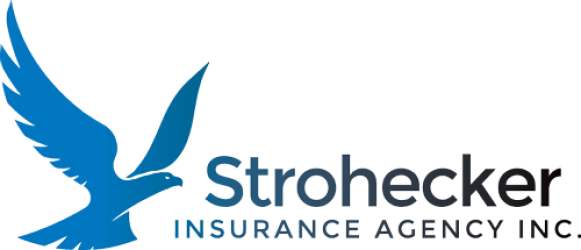Who Needs Auto Insurance?
Automobile accidents can cause great financial insecurity. Financial loss may include property damage, medical bills, and legal costs if a lawsuit arises. Anyone who owns a car should purchase auto insurance so that these important financial protections are provided. Most states require the owner of a vehicle to purchase insurance. In addition, your auto lender may require you to purchase auto insurance to protect them against damage to a financed vehicle. With over 50 years of combined experience, Strohecker Insurance is here to help you through choosing the right coverage for your needs.
Liability Coverage
Most auto liability insurance policies contain three major parts: liability insurance for bodily injury, liability insurance for property damage, and uninsured/underinsured motorist coverage.
- Bodily injury liability insurance does not protect you or your car directly. If you cause an accident in which other people are injured due to your negligence, this insurance protects you against their claims for damages, such as medical expenses, lost wages, and pain and suffering.
- Property damage liability insurance pays for any damage you cause to the property of others, such as damage to another vehicle, fence, or tree caused by a collision.
- Uninsured motorist coverage protects you directly. This coverage pays if you are injured by a hit-and-run driver or a driver who does not have auto liability insurance. This coverage, in effect, takes the place of the liability insurance that the other driver should have purchased but did not. Underinsured motorist coverage applies when the other driver is at fault and whose limits of liability are lower than the damages you sustained. Your underinsured motorist coverage will pay you an additional amount up to your policy limits. Uninsured and underinsured coverages may provide coverage for both bodily injury and property damage losses combined, or you may be required to purchase separate coverage for bodily injury and property damage.
When purchasing liability coverage, we will help you determine the amount of coverage needed to protect yourself if a loss occurs. Coverage is often sold with a per person and total per loss maximum amount. For example, 100/300/50 coverage means that you have coverage of $100,000 bodily injury liability insurance per person, $300,000 total bodily injury liability insurance per accident, and $50,000 property damage liability per accident.
Liability Coverage
There are two types coverage that you can choose to purchase to protect your car.
- Collision Coverage pays for physical damage to your car as a result of your auto colliding with an object, such as another car or a tree.
- Comprehensive Coverage pays for damage to your auto from almost all other losses other than collision. Covered losses under comprehensive coverage include the following: theft, fire, vandalism, weather related losses such as hail, water (flood), falling objects, damage caused by a bird or animal, and glass breakage.
- When purchasing collision or comprehensive coverage, you will need to determine what your deductible should be. A deductible is the amount of money you agree to pay prior to the insurance company making any payment on a loss. Typical deductible amounts are $250, $500 or $1000.
Other Optional Coverage
Depending on what you want to protect against and how much money you want to spend, there are several other types of coverage which you may purchase. These include:
- Medical Payment Coverage (MPC) pays for the medical and funeral expenses for you or others injured or killed in an accident while riding in or driving your auto. This coverage also often extends to insureds that are struck by a vehicle while acting as a pedestrian. Covered expenses include hospital, surgical, chiropractor, dental, and funeral expenses. This might duplicate benefits provided by your health insurer.
- Rental reimbursement coverage or transportation expenses pay for a rental car if your vehicle is damaged by a covered loss. This coverage is usually purchased with a daily and total maximum. For example, $20 per day up to a total of $600.
- Towing or Emergency Road Service coverage pays the cost of towing your car to a repair shop.
